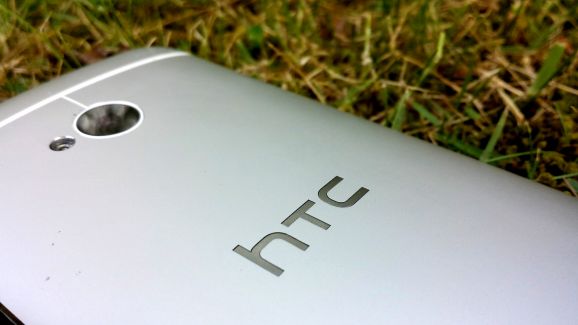 The debate of whether plastic or metal is a better material for smartphones has raged as long as anyone cares to remember, of course reaching its climax in 2013 with the release of the aluminium-encased HTC One and the plastic all-rounder, the Samsung Galaxy S4. That argument has yet to come to a logical conclusion (whether or not logic is generally used in these discussions is a different matter completely) and with the imminent release of the Samsung Galaxy S5 and The All New HTC One, the battle of metal vs plastic has again been brought to the fore. In that light, let’s take a look at what’s wrong with plastic smartphones, or at least, the perception of this, and why people believe metal to be better.
The debate of whether plastic or metal is a better material for smartphones has raged as long as anyone cares to remember, of course reaching its climax in 2013 with the release of the aluminium-encased HTC One and the plastic all-rounder, the Samsung Galaxy S4. That argument has yet to come to a logical conclusion (whether or not logic is generally used in these discussions is a different matter completely) and with the imminent release of the Samsung Galaxy S5 and The All New HTC One, the battle of metal vs plastic has again been brought to the fore. In that light, let’s take a look at what’s wrong with plastic smartphones, or at least, the perception of this, and why people believe metal to be better.
There are plenty of rumours about what the Galaxy S5 is going to be made of: there is talk of the Galaxy S5 adopting a metal construction while other reports say that it will end up adopting the faux-leather back cover seen on the Galaxy Note 3. Both of these rumours could be true in their own right, but then there’s also the rumour of two variants, a premium and standard edition. It’s possible that Samsung will give the premium version the more ‘premium’ treatment with metal whereas resorting to the ‘cheaper’ plastic for the standard edition, but I guess what the issue at hand is, what exactly makes metal a better choice for a smartphone.
While at the heart of the discussion is obviously personal preference, we’ll deal with that a little later; I’d like to first address the practical and physical aspect of the debate. Metal is a material that humanity has now dealt with for many years and we’re all very familiar with its properties; from a smartphone perspective, it provides a very protective shell with high tensile strength, something that is rarely replicated with other materials. Converse to this, plastic’s strength can never really be compared to metal’s, in a general sense, as metal’s method of preparation ensures that it will inevitably be harder and much stronger, from a materials perspective. Applied to a smartphone, however, I think plastic comes into its own.
The ‘strength’ of a phone’s construction, I feel, has been given a fairly arbitrary interpretation in today’s media; we are generally quite quick to assume that metal is more premium feeling and we know it is a stronger material, therefore it should be better for our smartphones. If, however, you take a look at all the hyper-protective cases available on the market, you will notice they all have one particular characteristic in common: they all incorporate an absorption system that usually relies on give. More specifically, this is quite similar to the idea of crumple-zones on vehicles where the impact of a crash is absorbed by the car’s chassis rather than transferred in its entirety to its occupants. In the same way, these cases distribute destructive forces away from your device when it hits the ground.
In a similar way then, in the absence of a case, the construction of your phone has a similar mandate; to direct damaging forces away from the phone’s internal electronics. Perhaps most telling about metal devices is the fact that they have no give; metal does not warp or bounce, therefore if a HTC One is dropped, the exterior of the One is likely to dent, as is often documented. Conversely, a plastic device that is dropped is unlikely to suffer the same kind of permanent defect, though in extreme cases, the cover itself may snap. As you can see then, plastic is in no way less appropriate for a smartphone than metal; they simply have different abilities, both with their own advantages in specific scenarios.
Now, moving on to the question of whether one material or the other feels ‘premium’, this can only ever be a personal preference. It can be said that a brushed aluminium object may be one of the nicest objects to hold in the world, but plastic can be just as smooth, if not smoother (on a molecular level). It’s an impossible argument to win as everyone prefers something different in their own personal device, and it’s worthwhile to remember that before you question somebody for liking something “they shouldn’t”.
 The purpose of my discussion here is not to paint the picture that either plastic or metal is superior as a material for a smartphone, as both have their pros and cons, and at the end of the day, it is down to a person’s personal preference. Rather, the point of this article is to perhaps encourage more intellectual discussion between opposing parties in this debate and try to discourage blind ‘fanboyism’, which unfortunately many conversations tend to boil down to; it’s often one thing to say you prefer something, but entirely another to accept the disadvantages and consequences of your choice.
The purpose of my discussion here is not to paint the picture that either plastic or metal is superior as a material for a smartphone, as both have their pros and cons, and at the end of the day, it is down to a person’s personal preference. Rather, the point of this article is to perhaps encourage more intellectual discussion between opposing parties in this debate and try to discourage blind ‘fanboyism’, which unfortunately many conversations tend to boil down to; it’s often one thing to say you prefer something, but entirely another to accept the disadvantages and consequences of your choice.
But enough about what I think: what’s your opinion on metal or plastic, and why do you prefer it?
[poll id=”77″]












